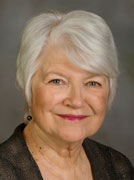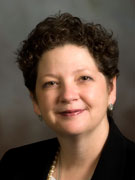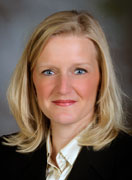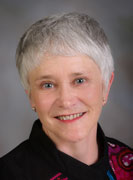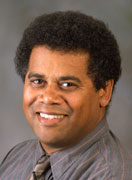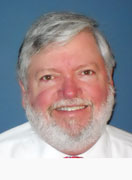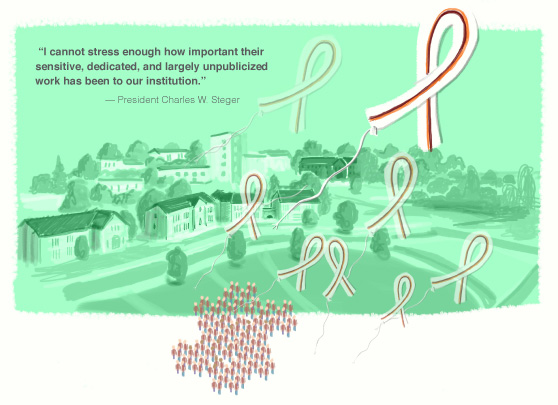 |
|
||||||
|
|
|||||||||||||||||||||||||||||||||||||||||||||||||||||||||||||||||||||||||||||||||||||||||||||||||||||||||||||||||||||||||||||||||||||||||||||||||||||||||||||||||||||||||||||||||||||||||||||||||||||||||||||||||||||||||||||||||||||||||||||||||||||||||
|
Office of Recovery and Support personnel perform with valor The shootings at Virginia Tech on April 16, 2007, prompted many extraordinary gestures of support. Then-President George W. Bush flew in for a convocation at Cassell Coliseum. The New York Yankees donated $1 million and played the Hokies in an exhibition game at English Field. Hundreds of volunteers traveled many miles to help on campus when classes resumed. But one of the most intensive and demanding efforts to help those affected by the tragedy occurred out of public sight. In July 2007, the university created the Office of Recovery and Support to address the needs of students who were injured, their families, and the 32 families who lost loved ones.
"We often said it was the best-worst job any of us had ever had," said Scott Johnson (Ph.D. family and child development '91), a licensed marriage and family therapist and director of the university's marriage and family therapy Ph.D. program. Johnson served as the office's associate director for much of its existence and was a primary Virginia Tech contact for many families of those who were killed. "There was no question what we were trying to do was important. It just was very difficult work." Now that all of the students served by the office have completed their degrees, the office has closed and its responsibilities have been assumed by Alumni Relations. In addition, a federal grant that supported recovery and support efforts expired in February. "I think we have moved from victim care and victim support to family relations," said Associate Vice President for Alumni Relations Debbie Day (communication '84, M.S.E.D. adult and continuing education '93), who accepted the additional duty of directing the Office of Recovery and Support in July 2008. "We plan to keep in touch with all those students and families who want to [hear from us], and we will continue to coordinate April 16 commemoration events for the families." "These are people who were asked to provide an extraordinary service to Virginia Tech and who stepped up to do an excellent job under incredibly difficult circumstances," said university President Charles W. Steger. "I cannot stress enough how important their sensitive, dedicated, and largely unpublicized work has been to our institution." Seeking an appropriate tone At the core of the Office of Recovery and Support's mission was giving personalized attention to the injured students and 32 families, but its work soon grew to include other projects, including helping to handle thousands of items that well-wishing people from around the world sent to campus, and coordinating Day of Remembrance events. "We knew we wouldn't be able to help these families in any way unless we could create the right sense of acknowledging their loved ones and the enormous loss they felt," said Jay Poole (agriculture education '78), a former vice president of corporate communications for Altria, who volunteered to help the university manage the enormous media response immediately following the shootings and was later asked by Steger to head the Office of Recovery and Support. Poole already possessed significant experience handling sensitive communications projects. He also brought an ability to empathize with the victims' families in a way many others might not have, due to the death of his own son, Tom, following a bicycle accident in 1999. Because of his personal history, his connection to Virginia Tech, and the difficult nature of his job at the university, Poole said his year in the office was "the hardest thing I have ever done." "One reason the job was so challenging," he said, "is that parents who have lost a child face a special kind of emotional pain. We were constantly aware that the university's words and actions were viewed through a different prism by those who suffered such a difficult loss." Megan Armbruster Franklin, the office's recovery coordinator and injured-student liaison, said she kept the need for empathy in mind as she led meetings in preparation for the Day of Remembrance events in 2008, 2009, and 2010. "We tried to propose a plan for events that focused on our families and would also feel appropriate to everybody else," said Franklin, who now works for the Office of Academic Assessment. "So we were being very sensitive in how we planned things to make sure we were being comforting and providing support."
"Jay and I would talk about feeling that every word we put into an update for the families was like dealing with explosives," Johnson said. "You couldn't be sure that something you said in all sincerity and innocence might not hurt people, so we had to be very careful before we sent things out." As they reached out to families, Johnson and his colleagues were careful to respect boundaries, and carefully worked to try and build relationships, said Marilyn Hutchins, a licensed professional counselor who worked with both students and families for the office. For example, Hutchins said, one victim's mother at first referred all communication through a sibling. Over time, however, Hutchins became very close to that family. When Hutchins' husband died in November 2010, that victim's mother reached out to her even though Hutchins had left the Office of Recovery and Support months before. "One of the most important things was to develop a sense of trust," Hutchins said. "Some of them were having trouble trusting us because they didn't trust the university. I think, over time, they learned to trust us." A 100 percent graduation rate Twenty-six students suffered nonfatal physical injuries in connection with the tragedy. These ranged from multiple gunshot wounds to a sprained ankle one student suffered while fleeing Norris Hall. Seven of those students graduated in May 2007, before the office was formed. Caring for the 19 who returned in August that year was a major priority, handled largely by Franklin. "One of the things that I was watching, monitoring, was if they got back into their involvement with the community," Franklin said. "Whether it was through service projects or through clubs, orchestra, or research, I wanted to see them re-engaged." Franklin said she sought to get the students together regularly for events. Early on, there were several extraordinary experiences for the students, such as the chance to meet former President Bill Clinton, then-Senator Barack Obama, and the musicians who performed at the all-volunteer Concert for Virginia Tech, created and led by Dave Matthews. Later on, the nature of the events changed, "but what always stayed constant was being together," Franklin said. "They wanted to create memories together, as a group, apart from this one horrendous memory." One regular gathering for the students was a monthly dinner at Poole's home, which continued even after he had left the office. The fact that all of the injured students not only returned, but also completed their degrees, is a point of pride for Poole and others who worked with him. "They were collectively bright enough to realize that in some ways they symbolized the recovery [of the university]," Poole said of the students. "That was a burden. Nobody openly discussed this, but they were under enormous pressure to come back to school and succeed. Most of it was internal and self-imposed, but that's how they felt about it." Providing chances to come together When asked to describe some of the office's efforts that seemed particularly successful, Day cited two programs that made it possible for people who were especially affected by the tragedy to get together. The first was a series of 32 "friends of" meetings held in Squires Student Center during 2008. Each meeting was an opportunity for people who had known one of the victims to come forward, share memories, and console each other. The second was the April 16 Victims Support Program, a three-day conference held in October 2009 in Landsdowne, Va. More than 80 people, including siblings and grandparents of some victims, attended. The weekend-long event included presentations from several people who had lost children to violence. "I just felt like if we could give them a weekend that wasn't centered on the anniversary [of the shootings] or a football game ... and could provide them an opportunity to hear from some people who had kind of walked in their shoes, that it would be a good thing," said Anna Beth Benningfield, a licensed psychologist and marriage and family therapist who organized the event. "And I think it was a good thing." Benningfield was a visiting faculty member at Virginia Tech from 2001-04 and had consulted for the university afterward while maintaining a private practice in Dallas. Provost Mark McNamee recruited her to serve as a liaison to the families of the faculty members who were killed, and she was technically one of his employees, though she worked out of the Office of Recovery and Support from 2007-10. When interviewed, Benningfield was about to retire from private practice after 30 years as a therapist. She described her experience in the Office of Recovery and Support as a "capstone" to her career. "I think we made a difference," she said. "We were able to do some good for some people. Maybe not as much as we would have liked to do, but I think that we offered some much-needed support and help to the injured students and their families and then to those who had lost loved ones. I think they felt like we weren't just doing a job—we really did care about them. And we did. We do." Benningfield, Franklin, Hutchins, Johnson, and Poole all say they will never forget their experiences in the office. They take comfort in knowing the responsibilities they shouldered are now being handled by Day and an assistant director, Kelly Griffin (biological sciences '07), who, like Day, has been involved in the university's recovery and support efforts since 2008. "All of our families still have our email addresses and can get in touch with us if they want," Johnson said of himself and other who are no longer serving as liaisons. "But we should retire from their lives unless they want to ask us back in. They didn't invite us in the first place. They were gracious enough to let us make contact and try to be supportive." • Return to Around the Drillfield |
|
||||||||||||||||||||||||||||||||||||||||||||||||||||||||||||||||||||||||||||||||||||||||||||||||||||||||||||||||||||||||||||||||||||||||||||||||||||||||||||||||||||||||||||||||||||||||||||||||||||||||||||||||||||||||||||||||||||||||||||||||||||||||

